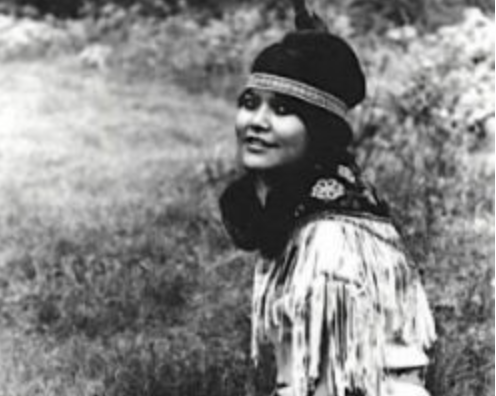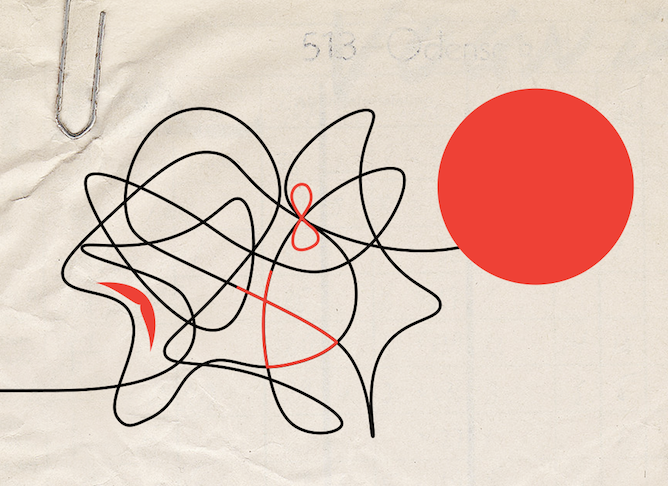
Chilliwack Players Guild circa 1968
Republished https://abcbookworld.com/writer/manuel-vera/
20 March 1948 - 2 January 2010
Vera Manuel (Kulilu Paⱡki Butterfly Woman) was an important poet, playwright, and dramatherapist. Drawing on her family’s experiences with the residential school system and the intergenerational trauma it gave rise to, as well as her own experiences with the healing power of writing and performing, Manuel composed a number of poems and plays, established dramatherapy groups and workshops, and, throughout her lifetime, became a respected activist and keynote speaker at several national and international conferences.
Vera Manuel was born on 20 March 1948 into a culturally and politically active family. Her mother, Marceline Paul (Ktunaxa), was a drug and alcohol counsellor, cultural leader, and respected elder. Her father, George Manuel (Secwepemc), was an influential activist both in Canada and abroad; he was President of the North American Indian Brotherhood (1959-1960), Chief of what was formerly the Shuswap Indian band (1960-1966), Chief of the National Indian Brotherhood (1970- 1976), President of the World Council on Indigenous Peoples (1975-1981), and President of
the Union of British Columbia Indian Chiefs (1979-1981).
As a child, Vera Manuel grew up on the Neskonlith Reservation in the interior of British Columbia. While she and some of her siblings were able to attend local public schools, her younger brothers and sisters attended residential schools in
Kamloops, Cranbrook, Port Alberni, and Mission. Both the immediate and the intergenerational impacts of Canada’s residential school system played a significant, but largely silent, role in Manuel’s family history—a theme she
repeatedly returns to in her poetry, plays, and short stories. Although Manuel grew up aware of her mother’s and father’s experiences as survivors of what she has called “a world of violence and isolation” (26)[1]—of residential schools and
tuberculosis sanatoriums—she did not learn about the physical and sexual abuse her parents experienced until much later in her life, when her mother began to share stories about her childhood and adolescence at St. Eugene’s Residential School. Much of Vera Manuel’s work, such as her critically acclaimed play, Strength of Indian Women, returns to the stories her mother and other women told her, and reflects on the effects that unacknowledged trauma can have on people’s lives, including her own.
The relationships between storytelling, writing, healing, and performing had always played an important role in Manuel’s life. As a young adult, she kept journals and wrote her own poetry. She lived in Vancouver for several years where she studied history, Indigenous culture, and writing at the University of British Columbia and at Langara College. Yet Vera Manuel did not fully realize her vocation as a creative writer, poet, and playwright until she was in her forties, after she returned home from having lived in Los Angeles with her sister, Emalene (Arlene), for several years. Following her return in the late 1980s, a number of deaths, several of which were suicides, occurred in her network of family and friends as well as in neighbouring communities—a pattern that, as Emalene notes, made the Manuel family “dizzy
with grief” (3).
After the passing of her mother in 1988 and her father in 1989, Vera Manuel was contracted to write her first play, Song of the Circle, for a youth conference.[2] In the same year, she had begun co-writing a project called In the Spirit of the Family, a training manual for a national organization for treaty directors. In an interview she gave for Redwire with Peter Morin, Manuel remarks that the process of writing the manual allowed her to begin reflecting on how much work she had to do in relation to her own family’s trauma, a process she had been coming to terms with ever since her mother began speaking about residential school shortly before her death. Around the same time, Vera Manuel began group therapy with Emalene and, feeling that others like her could benefit from what she had learnt, decided to start her own workshops shortly thereafter, which drew on Family Systems Theory and Indigenous Knowledge Systems as therapeutic models.[3]
In the early nineties, Vera Manuel began working on Strength of Indian Women,[4] perhaps her most well-known play on residential schools, abuse, intergenerational trauma, and healing. In the years that followed, she went on to write Journey through the Past to the Future, Echoes Of Our Mothers’ Past, and Every Warrior’s Song as well as a number of other plays she co-authored with other women.[5] She also wrote several short stories, including “That Grey Building,” “Theresa,” “The Letter,” and “The Abyss”; only the last one was published during her lifetime. She also wrote many poems, a handful of which have been included in The World Poetry Anthology (2002), ROCKSALT: An Anthology of Contemporary B.C. Poetry (2008), Salish Seas: an anthology of text + image (2011); the largest collection of her poetry is included in Honouring the Strength of Indian Women (2019).
Throughout the last two decades of her life, Vera Manuel’s role as an artist, activist, therapist/healer, and cultural leader took various forms: she continued to facilitate healing groups, was a curriculum developer and keynote speaker at several national and international conferences, worked with other activists and artists on CDs, educational videos, and films, and was responsible for writing two journal publications and a number of training manuals.[6]
In 2004, she was diagnosed with pulmonary fibrosis, which threatened to curb her impressive literary and cultural output. Despite her illness, she remained very active in her community.
From 2004-2005, she was contracted through Helping Spirit Lodge Society to do storytelling work and develop a Drama Therapy Program, a position which allowed her to continue working while remaining closer to home. She was also a featured poet and member of World Poetry (WP), and was awarded the World Poetry Lifetime
Achievement Award. She continued holding poetry readings and conferences until
her health took a turn for the worse. She passed away peacefully at Vancouver
General Hospital on January 22, 2010, at the age of 61.
Selected Readings:
Manuel, Vera. “The Abyss.” Residential Schools: The Stolen Years. Edited by Linda Jaine. U of Saskatchewan P, 1993.
---. “The Catholic Church.” ROCKSALT: An Anthology of Contemporary B.C. Poetry. Edited by Mona Fertig and Harold Rhenisch. Mother Tongue, 2008. pp. 150-151.
---. Honouring the Strength of Indian Women. Edited by Michelle Coupal, Deanna Reder, Joanne Arnott, and Emalene Manuel. U of Manitoba P, 2019.
---. “When I First Came To Know Myself” and “Two Brothers.” Salish Seas: an anthology of text + image. Edited by Joanne Arnott and Michelle Sylliboy. Aboriginal Writers Collective West Coast, 2011. pp. 68-70.
---. “Strength of Indian Women.” Two Plays About Residential Schools. Living Traditions, 1998. pp. 75-119.
Works Cited:
Manuel, Emalene. “Introduction: Emalene (Arlene) Manuel.” Honouring the Strength of Indian Women: Plays, Stories, Poetry by Vera Manuel. Edited and with Afterwords by Michelle Coupal, Deanna Reder, and Joanne Arnott. U of Manitoba P, 2018. 1-24.
Manuel, Vera. Honouring the Strength of Indian Women: Plays, Stories, Poetry by Vera Manuel. Edited and with Afterwords by Michelle Coupal, Deanna Reder, and Joanne Arnott. U of Manitoba P, 2018.
---. Interview by Peter Morin. “Letting go of Trauma On and Off
Stage.” Redwire. Accessed March 16, 2018. https://users.resist.ca/www.redwiremag.com/lettinggooftrauma.htm
Endnotes:
[1] Quotations from Honouring the Strength of Indian Women: Plays, Stories, Poetry by Vera Manuel have been taken from the manuscript. Page numbers may vary in the published version.
[2] The script for Song of the Circle was almost lost due to copyright laws for scriptwriters, but thanks to a close ally and legal advisor, Emalene and Vera were able to retain ownership over it. The play was first performed for the twentieth annual Union of B.C. Indian Chief’s conference, in August 1989, with Sophie Merasty as the elder Anmah. It also featured Michelle Thrush and Byron Chief Moon from 1989-1991.
[3] Family Systems Theory is a form of psychotherapy that helps individuals resolve emotional and/or psychological trauma within the context of their family unit. In the ‘80s and ‘90s, it was believed that Family Systems Theory lent credibility to, and was most closely aligned with, Indigenous Knowledge Systems. Although Vera Manuel worked with well-known therapists Elaine Story and Jane Middleton-Moz in order to underscore the credibility of Indigenous Knowledge Systems as therapeutic models, she and her sister Emalene continued to face scrutiny from the non-Indigenous community, which questioned whether these models measured up to “professional” counselling standards. Because of their non-mainstream approaches to healing and therapy, their interest in redefining conventional Western ways of telling stories and conducting therapy, and Vera’s lack of “official” credentials (which prompted one non-Indigenous therapist at Helping Spirit Lodge to suggest letting her go), the goal of Vera and Emalene’s project also addressed, on a much larger scale, the issue of decolonizing Western ways of thinking about therapy, theatre, and storytelling (Emalene Manuel 15). For more information on how the sisters struggled against Western standards pertaining to theatre and therapy, see Emalene Manuel’s introduction to Honouring the Strength of Indian Women, pp. 6, 8-9, 14-15.
[4] Strength of Indian Women was first staged by Storyteller Theatre at the Women in View Festival at Firehall Theatre, Vancouver, British Columbia, in January 1992. The play was in many ways a family production: Emalene Manuel played Sousette, Vera Manuel’s other sister, Doreen, joined the cast for a few of the play’s performances, and Emalene’s daughter, Nukinka, was mentored by Vera, who wrote the role of Suzie for her. The original cast of Strength of Indian Women included Carol DeEscobar Hoof (Agnes); Kutcinkaats Pathkey Arlene Manuel (Sousette); Nuhkinka Swinwen Uktht Mountain Melanie Manuel (Suzie); Penishe Gustin (Eva); Denise Lonewalker (Mariah); Sophie Merasty (Lucy). The play toured Canada and the United States, has been published by Living Traditions (1998), Indigenous Education Press (2018), and First Voices, First Texts (2018), has been discussed in Native American Drama: A Critical Perspective (2009), and has been taught in a number of classrooms.
[5] Some of the solely authored plays have been published in an anthology of her work published as part of the First Voices, First Texts series at the University of Manitoba Press. Scholars are also hoping to draw more attention to Vera Manuel’s co-authored plays, which she produced with women from her dramatherapy groups—plays which have not yet been published due to complications related to authorship and gaining permission for publication from the others involved.
[6] For a more comprehensive list of Vera Manuel’s impressive cultural and literary accomplishments, see pp. 4-5 of Emalene Manuel’s introduction to Honouring the Strength of Indian Women (2019).
Vera Manuel entry by Lara Estlin, March 2019. Lara is a former SFU student who completed her English Honours project on Indigenous authors William Apess (Pequot) and George Copway (Anishinaabe). After completing her BA at Simon Fraser University, she then completed her MA in the Department of English at UBC. She worked as a research assistant for The People and the Text from 2018 to 2020.
Updates by Eli Davidovici in April 2024. Eli completed his M.Mus. at McGill University in June 2024.
Entry edits by Margery Fee, April 2024. Margery Fee is Professor Emerita at UBC in the Department of English.
Please contact Deanna Reder at dhr@sfu.ca regarding any comments or corrections at dhr@sfu.ca.

